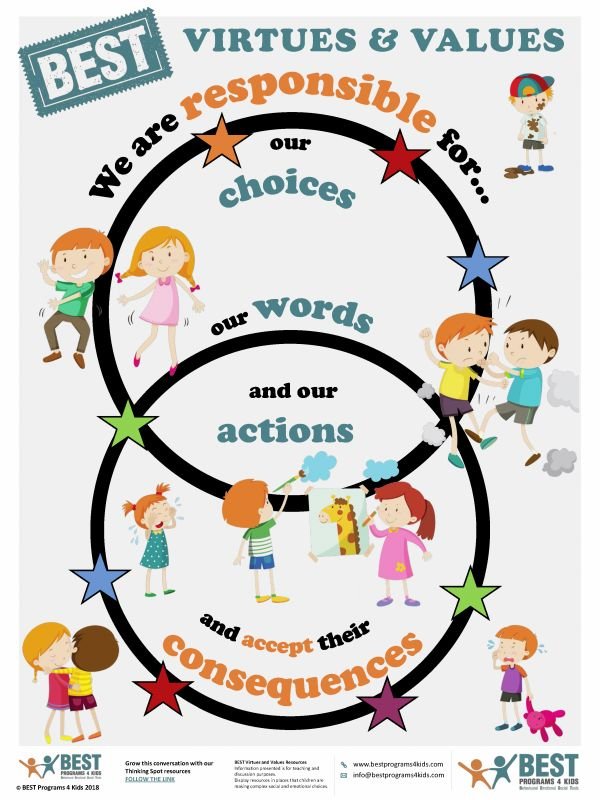Building Strong Character: Essential Morals and Ethics for Kids


Raising children with a strong sense of morals and ethics is one of the most rewarding and essential aspects of parenting. As children grow, they encounter a variety of situations where they must make decisions that reflect their values. Teaching them a foundation of key ethical principles helps shape them into responsible, compassionate, and confident individuals who can navigate the complexities of life.
Let’s explore the core values that help build strong character in children and how we can teach these important lessons early in life.
Teaching Kids Respect, Honesty, and Responsibility: A Guide for Parents
Three of the most fundamental values that form the backbone of a child’s moral compass are respect, honesty, and responsibility.
- Respect involves teaching children to value others’ feelings, thoughts, and differences. It extends beyond just saying “please” and “thank you” to understanding that every person deserves kindness and consideration. Modeling respectful behavior, such as listening when someone is speaking and treating others with dignity, helps children learn by example.
- Honesty is essential to building trust. Teaching kids that lying or hiding the truth hurts relationships encourages them to value honesty in their interactions. When children understand that being honest is not just about avoiding punishment but about maintaining integrity, they are more likely to make truthful choices, even when it’s hard.

Kindness and Fairness: Core Values Every Child Should Learn
At the heart of moral education lies the need to teach children the importance of kindness and fairness.
- Kindness means showing compassion to others. Encouraging kids to be kind in their daily lives—whether it’s sharing with a sibling, comforting a friend, or offering to help at home—builds their emotional intelligence and creates a sense of empathy. Through kindness, children understand that their actions can have a positive impact on the world around them.
- Fairness is equally important. Teaching fairness encourages children to treat others equally, play by the rules, and understand that everyone deserves an opportunity to succeed. Kids naturally recognize when something feels unfair, and guiding them to resolve situations with fairness helps them develop a sense of justice and equality.
Raising Responsible Kids: The Power of Gratitude, Integrity, and Trustworthiness
Teaching kids to be grateful, have integrity, and be trustworthy lays a strong ethical foundation for life.
- Gratitude helps children develop a mindset of appreciation. Instead of focusing on what they lack, children who learn to express gratitude recognize the good in their lives and the efforts others make on their behalf. Whether it’s thanking someone for a gift or being appreciative of small acts of kindness, gratitude fosters happiness and contentment.
- Integrity means doing the right thing, even when no one is watching. It’s important to teach children that their actions should align with their values. When kids learn to act with integrity, they develop a deep sense of self-respect and earn the trust of those around them.
- Trustworthiness is closely tied to both honesty and integrity. Being someone others can count on helps build strong relationships. When children follow through on their promises, they develop a reputation for reliability, which is invaluable in friendships, school, and family life.

Conclusion: Moral Education for Kids – Instilling Values for a Better Future
Teaching children morals and ethics isn’t about giving them a set of rules to follow—it’s about guiding them to become thoughtful, kind, and responsible individuals. Values such as respect, honesty, kindness, empathy, and responsibility form the basis of strong character. When kids learn these lessons early on, they are better equipped to face the world with integrity, make sound ethical decisions, and contribute positively to their communities. By instilling these values, we lay the groundwork for a brighter, more compassionate future.
